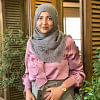Believe there is hope for a cure

On Sunday, 12 January 2020, Parkway Cancer Centre and Mount Elizabeth Hospitals Singapore organised an informative seminar focusing on the different types of cancers women are vulnerable to.
Hosted by Lakeshore Hotels in Gulshan, the event was only open to females. Two guest speakers who are thriving in their professional fields, Dr See Hui Ti, Senior Consultant, Medical Oncology, PCC, Singapore, and Dr Tan Yeh Yuen, Senior Consultant, Breast Surgery, Mount Elizabeth Hospital, Singapore flew to Dhaka for this special occasion.
The first session, titled "Cancers in Women: Why should I know?" was headed by Dr See Hui Ti. She spoke about gynaecological cancers women are susceptible to, such as cervical cancer, ovarian cancer, and uterine cancer.
Amidst the many important issues discussed, she emphasised the importance of early detection and prevention of cancer.
"It is important to focus on the symptoms and what can be done early on to prevent, because prevention is always better than cure," she said.
Luckily, for women, the risk of attaining cervical cancer can be brought down with HPV vaccine. The earlier a shot is taken, the longer is the protection. This is classified as primary prevention. Secondary prevention refers to Pap smear testing. By getting a Pap smear test done just once in every three years, the risk of attaining cervical cancer can be reduced by up to 91 percent.
In the second session, titled "Current Status for Surgical Treatment for breast Cancer" the orator Dr Tan Yah Yuen shed light on the possible treatment options of breast cancer. Breast cancer is on the rise, but with early detection and proper treatment, survival chances can increase. Furthermore, earlier stages of treatment are more effective and cheaper.
In order to detect breast cancer, one should go for screening even before the symptoms occur. A self-examination should be conducted once a month, a health specialist should be sought once a year and a mammogram or USG should be conducted once every couple of years.
Certain lifestyle changes such as avoiding alcohol consumption and being overweight along with regular exercise can reduce the risks of getting breast cancer. Adults are recommended to exercise at least five days a week, 30 minutes per day. Dietary changes such as consuming more vegetables and fruits, choosing whole grains over processed ones, and avoiding processed and read meats all play a crucial role in prevention.
As concluding remarks, Dr Tan Yah Yuen said, "In modern treatment we do not only seek to cure but also to improve the quality of life of the ailed and prevent complications, so that the victim can lead a normal lifestyle."
The seminar ended on a high note with a game session arranged for the guests. It was an informative and interactive evening where cancer survivors and their families got to interact and socialise with each other.

 For all latest news, follow The Daily Star's Google News channel.
For all latest news, follow The Daily Star's Google News channel. 



Comments